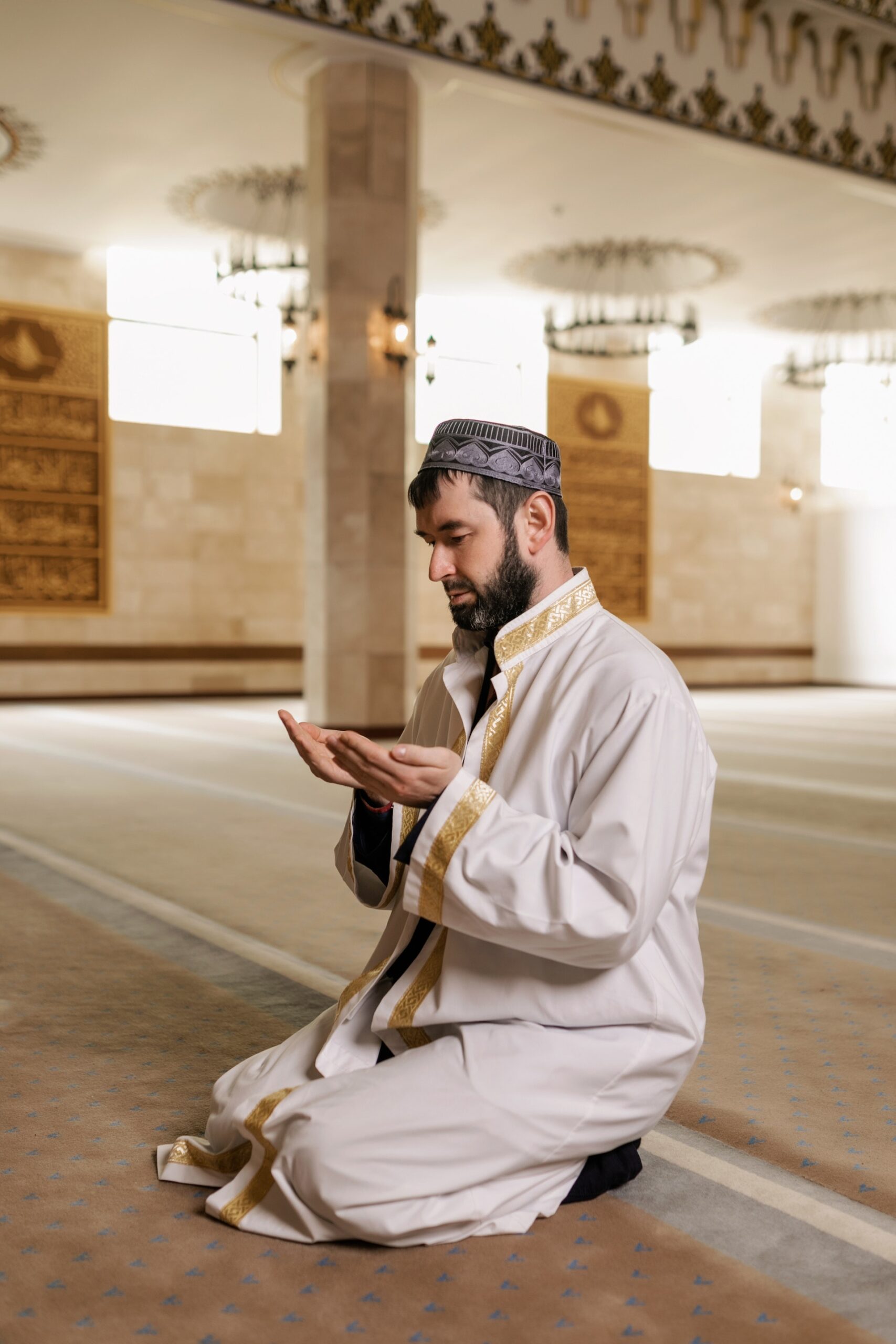In the fast-paced world we live in today—filled with noise, stress, and constant distractions—many hearts long for peace. Some turn to meditation, others to self-help books or therapy. Yet, for a believer, the most profound source of comfort and tranquility lies in something far simpler and far more powerful: Dua, the act of supplication to Allah.
Dua is not merely a ritual or a last resort in times of hardship; it is a deep spiritual connection between a servant and the Creator. It reflects faith, humility, and dependence on the One who has control over all things. Through dua, a believer opens their heart, shares their worries, expresses gratitude, and finds solace unlike any other.
1. The Meaning of Dua
The Arabic word dua literally means “to call” or “to invoke.” In Islamic terms, dua is calling upon Allah for help, guidance, forgiveness, or anything that one desires. It is one of the most beautiful acts of worship, as Allah Himself commands in the Qur’an:
“And your Lord says, ‘Call upon Me; I will respond to you.’”
(Surah Ghafir 40:60)
This verse is a direct invitation from the Lord of the worlds to His creation. It shows that dua is not only allowed but encouraged—it is a means of building a personal relationship with Allah, free from any intermediaries.
2. Dua: A Reflection of Faith and Humility
When a person raises their hands in dua, it is an act of humility. It acknowledges human weakness and Allah’s infinite power. Dua is an expression of tawakkul—trust and reliance on Allah. The Prophet Muhammad ﷺ said:
“Dua is the essence of worship.”
(Tirmidhi)
This hadith highlights that true worship is not just about rituals; it’s about a heart that recognizes its dependence on its Lord. The one who makes dua believes that Allah hears, sees, and answers in the best way and at the best time.
3. The Psychological and Spiritual Peace of Dua
Modern psychology often emphasizes the importance of releasing emotions and sharing feelings. In essence, dua fulfills this human need but at a higher, spiritual level. When you turn to Allah in supplication, you release your worries, sadness, and fears into His care. You no longer feel alone in your struggles.
Dua as Emotional Relief
Many people carry silent burdens—anxiety, guilt, uncertainty. Dua provides a safe space to unload these emotions. You can speak to Allah about anything, even what you can’t tell another soul. Knowing that Allah listens—without judgment—creates emotional relief and mental peace.
Dua Strengthens Faith
When a believer sees their prayers being answered, their iman (faith) increases. Even when the response seems delayed, it strengthens patience and trust in Allah’s wisdom. Every dua—answered or not—is beneficial, as the Prophet ﷺ said:
“There is no Muslim who makes dua, except that Allah gives him one of three things: either He answers his dua, or He stores it for him in the Hereafter, or He averts a calamity equal to it.”
(Ahmad)
This means that dua is never wasted. Every sincere supplication brings spiritual growth and closeness to Allah.
4. Dua in Times of Hardship
Throughout the Qur’an, we find stories of Prophets who turned to Allah through dua during their hardest moments:
- Prophet Yunus (AS) in the belly of the whale cried out:
“There is no god but You; Glory be to You! Indeed, I have been of the wrongdoers.”
(Surah Al-Anbiya 21:87)
Allah responded and saved him. - Prophet Zakariya (AS) prayed for a child despite old age, and Allah granted him Yahya (AS).
- Prophet Ayyub (AS), suffering from illness and loss, supplicated:
“Indeed, adversity has touched me, and You are the Most Merciful of the merciful.”
(Surah Al-Anbiya 21:83)
Allah restored his health and blessings.
These examples show that dua is not only for when things go wrong—it is a believer’s lifeline in every situation. It turns desperation into hope and pain into peace.
5. Dua in Times of Ease
While many people remember Allah during hardships, the true believer continues to make dua even in times of ease. The Prophet ﷺ taught:
“Remember Allah during times of ease, and He will remember you during times of hardship.”
(Tirmidhi)
Regular supplication during peaceful moments builds gratitude and prevents arrogance. It reminds us that all blessings—health, family, wealth, and happiness—come from Allah. Continuous dua keeps the heart humble and connected.
6. The Etiquette of Making Dua
To truly experience the power of dua, one should follow the etiquettes taught by the Qur’an and Sunnah:
- Begin with Praise and Salawat
Start by praising Allah and sending blessings upon the Prophet Muhammad ﷺ.
Example: “Alhamdulillahi Rabbil ‘alamin, Allahumma salli ‘ala Muhammad.” - Raise Your Hands and Face the Qiblah
This shows humility and focus. - Ask with Certainty and Sincerity
The Prophet ﷺ said: “Call upon Allah while being certain of being answered.” (Tirmidhi) - Avoid Hastiness
Do not give up if your dua isn’t answered immediately. Allah knows the right time. - End with Praise
Conclude by thanking Allah and again sending peace upon the Prophet ﷺ. - Use Beautiful Words and Names of Allah
Allah says:
“To Allah belong the most beautiful names, so call upon Him by them.”
(Surah Al-A‘raf 7:180)
7. Dua and Inner Peace
The true power of dua lies in its ability to calm the heart. When you pour your soul out to Allah, you realize you are not in control—He is. This realization brings relief. You stop worrying about what you can’t change and start trusting the One who can.
“Verily, in the remembrance of Allah do hearts find rest.”
(Surah Ar-Ra’d 13:28)
Dua is a form of remembrance (dhikr). It reminds you that you’re never abandoned, even when life feels uncertain. Every tear shed in dua is a form of healing. Every whispered prayer strengthens the bond between you and your Creator.
8. Making Dua a Daily Habit
To make dua a source of peace in daily life:
- Set aside quiet moments after each prayer for personal dua.
- Keep a dua list—things you wish to ask from Allah.
- Make dua for others, as angels then make the same dua for you.
- Teach children to make dua regularly.
- Turn everyday moments—before sleep, while traveling, or facing challenges—into opportunities for supplication.
When dua becomes part of your daily rhythm, peace becomes part of your soul.
Conclusion
The power of dua lies not only in its ability to change what happens but in its power to change how we feel. It connects us to Allah, strengthens our faith, and brings serenity to our hearts. Through dua, we learn that peace is not the absence of problems—it is the presence of Allah in our lives.
Every raised hand, every whispered plea, every tear shed in prayer is a step closer to inner peace. So never underestimate the power of dua. It is your direct line to the Most Merciful, your shield in times of pain, and your path to everlasting tranquility.




